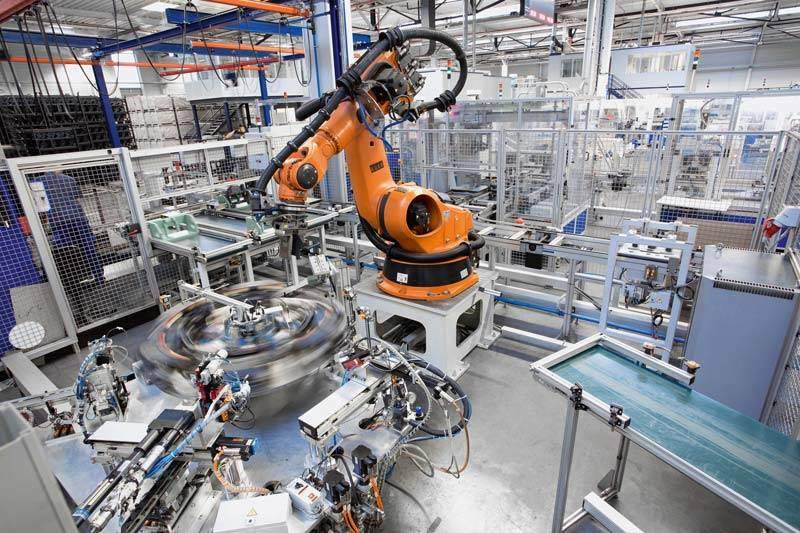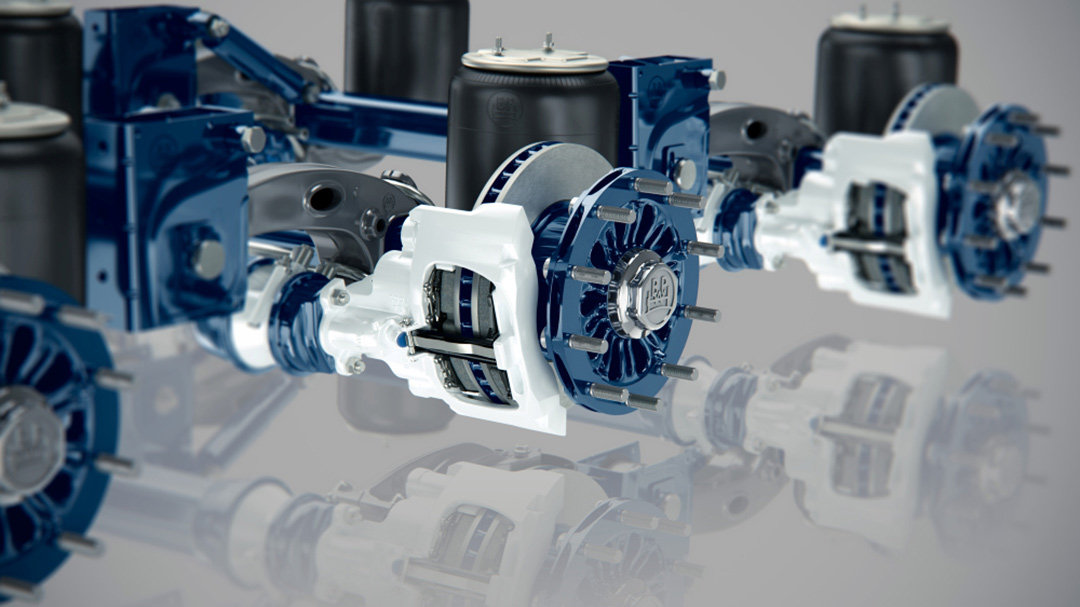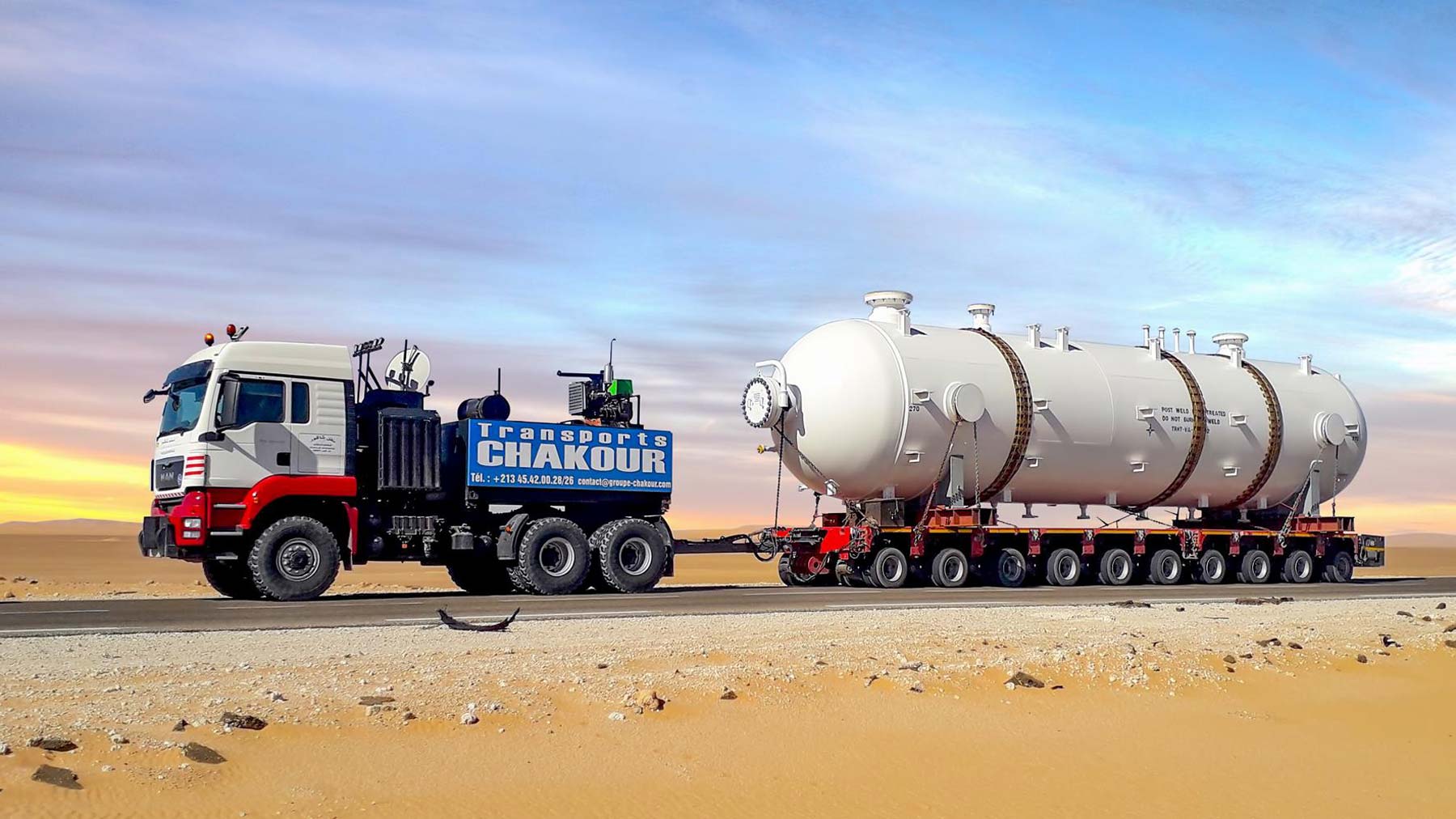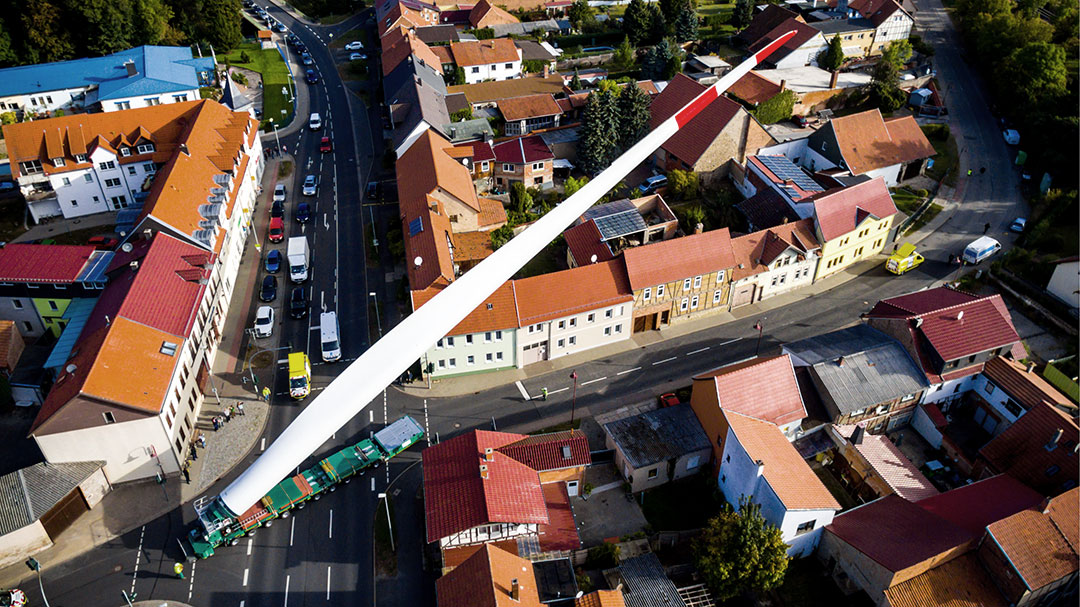Text: Juliane Gringer
Photos: BPW
A digitally interconnected wheel and axle assembly shop was completed in a major project at the BPW facility in Wiehl. The challenge of implementation was taken up by the IT production & internal logistics department.
Ultra-modern and highly automated
One of the most extensive projects undertaken by the IT department entailed the replacement of an 18-year-old assembly operation. In 2017 the two discrete shops that previously assembled wheel ends and axles have been brought together in a single, ultra-modern and highly automated building. It has adopted the one-piece flow principle of manufacturing each unit individually and assigning it to the specific ultimate customer as early as the production planning stage. From multi-stage manufacture to coating, assembly, packaging and shipping, the identity of the customer purchasing the product is known throughout the chain. According to Reissner, the biggest challenge when re-engineering the assembly operation was presented by the enormous variety of units and their different cycle times. “All of our work is completely customer-focused nowadays,” he says. “In ordering an individual packing unit, the customer effectively determines the production sequence. We have the additional task of ensuring that, despite the different cycle times of the individual work cells, the manufacturing capacities are coordinated and utilised to the greatest possible extent along the entire production chain.“
The eye of anyone taking a tour of the new assembly shop is sure to be caught not only by the state-of-the-art robots as they fully automatically insert wheel studs into the brake discs at high speed, but also by the abundance of assembly terminals, scanners and large VDUs alongside the machines. The workers use these devices to retrieve all the key indicators and data concerning the manufacturing process in real time – by way of a system that digitally maps every production step.

Alexander Reissner, head of IT production & internal logistics at BPW
Human interface
Alexander Reissner and his team oversee all of BPW’s IT-enabled production systems, and therefore serve as an interface between departments. “We work with numerous partners – from suppliers of screw fasteners to machine manufacturers and SAP experts,” explains Reissner. “They operate in very diverse domains, so that a common understanding of the processes is essential.” That cannot be brought about without good communication, he says, “We get everyone around the table and talk to each other in order to develop the system-overarching and interdisciplinary processes together, and visualise them in a way that everyone understands. We have to remain constantly aware that digitisation is controlled by people, and all the parties involved must always coordinate their actions with one another.“
Career profiles in IT are changing
This is an environment that calls for a new generation of IT experts, insists Reissner, because the nature of the job is changing significantly. “We need more and more young people to cultivate a new mindset, who possess a good general understanding of the subject but nonetheless specialise, and who are eager to interact and engage with all those concerned. In order to overcome the shortage of qualified labour in this emerging sector effectively, it is vital that these skills are embedded in the forthcoming cohorts of school leavers.”
The new assembly operation is running smoothly and deemed a success, but for the IT team work on project 4.0 continues. “We are on the right track, but this is not a conventional development process with a beginning and an end,” explains Reissner. In his view, sharing experiences with other companies forms part of the process as well. In cooperation with Cologne Chamber of Commerce, in the spring of 2017 BPW hosted a discussion forum on the topic of Industry 4.0. Representatives of six major enterprises gathered in Wiehl to inspect the assembly facilities. “We received a lot of positive feedback from our guests. They were impressed by the way in which we digitised the individual processes using the Industry 4.0 toolbox,” comments Reissner. “Talking with our colleagues raised many interesting issues and proved very useful, and we intend to continue the conversation we have now initiated.“
Digital map
The Federal Ministry for Economic Affairs and Energy has produced a digital map of Germany showing where Industry 4.0 practices are already being applied. BPW is one of 180 manufacturing companies across the country that are pinpointed. Reissner says, “I am very proud that we have been acknowledged as belonging to the pioneers.” He is also delighted that BPW made the decision to invest in the modern production systems in Wiehl. “As an employer, I recognise that the company believes in this site and is taking action to safeguard its future.”







